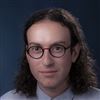The uncle of Jacob Blake, a Black man shot multiple times in the back by officers in Kenosha, Wisconsin, says the “daily ordeal” of families suffering from police violence goes largely unseen.
In a searing op-ed in The New York Times, Rick Blake writes, “Our story is different from those of many families whose lives have been devastated by police brutality — our Li’l Jake survived. But in mostly every other way, the experience is similar.”
“When the cameras stop rolling, the lights fade and public attention turns away, we’re left with our pain.”
The uncle tells how his brother, Jacob Blake Sr., has been affected by the Aug. 23 shooting of his son, which was captured on video and became another rallying cry in nationwide protests against police brutality and systemic racism.
“Big Jake,” as the family calls the father, is “a massive man” who was once a defensive tackle for a university in North Carolina, the brother writes.
“He also has diabetes, heart disease and chronic neuropathy,” Rick Blake writes. “The shooting of his son has forced … him to put himself at further risk during a pandemic that disproportionately affects Black men and others in our community.
Jacob Blake Sr. stayed by the hospital bedside of his son, “who lay partly paralyzed for over a month before being transferred to a spinal rehabilitation facility in Chicago.” Recently the father has been spending six to eight hours a day with his son at the rehabilitation facility, Rick Blake writes.
“The toll on my brother has gone largely unnoticed — except, of course, by members of our family. One night, he sat in the dark on a rock next to the hotel where he was staying, so sick and tired he couldn’t move, his hand swollen to the size of a catcher’s mitt from gout. By chance, the director of the hospital where Li’l Jake was being treated found him and he was taken to the emergency room for treatment,” the uncle writes.
Others in the Blake family are suffering, too, Rick Blake says. His brother’s three adult children, “have wearily traveled with their dad from events like August’s March on Washington to hospital waiting rooms. Li’l Jake’s 20-year-old brother was taken to a hospital in Illinois and treated for depression.”
The difficulties tie them to prior generations, the uncle says, including his father, a minister who marched with Martin Luther King Jr., and his uncle, also a minister, who led a protest against police brutality in Newark, New Jersey, in the early 1960s.
“These generations connect this family at this moment of truth. The truth that we, too, are human beings. ” Rick Blake writes. “Yes, we are weary. We as an African-American community are weary. We are tired of this fight to ‘prove’ the value of our humanity — a truth that should be self-evident.”
Still, he says, “As tired as we may be, we, like my brother, keep putting one foot in front of the other for our survival and for justice in this nation.”












